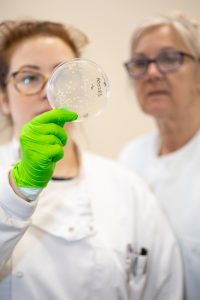Innovate UK is the United Kingdom’s innovation agency, which provides money and support to organisations to make new products and services. It is a non-departmental public body operating at arm’s length from the Government as part of the United Kingdom Research and Innovation organisation.
Innovation, the process that turns science and technology into added-value business reality, is the vital ingredient to creating a future of prosperity, good health, respect for our planet and environment – and a future of fairness, diversity, and equality.
Using this partnership with Innovate UK and as part of their strategic delivery plan, Bio2pure is developing a low-maintenance modular system for the biological, in-situ treatment of industrial/municipal wastewater Bio2pure’s in-situ treatment system will treat industrial/municipal waste effluent streams.
The low-maintenance system will use a proprietary blend of microorganisms to metabolise pollutants and reduce chemical oxygen demand (COD), biological oxygen demand (BOD), and suspended solids (SS) in compliance with parameters for effluent treatment in the UK.
The main aim of the project was to develop a treatment system that would allow a smaller footprint than traditional treatment plants by investigating suitable media that had a high surface area such that the quantity of bacteria could be increased.
Cultivating bacteria in the Bio2pure Laboratory:

The completion of the project has resulted in the following:
- Identified the most effective media in terms of COD reduction within reduced timescales. EcoChip media is the most effective in the system, both with standard and complex synthetic sewage, with average COD removal rates of 75.36% and 74.78%, respectively.
- Varying aeration levels and aeration times demonstrated the most effective aeration pattern without loss of COD removal rate. Intermittent aeration can be employed on the system, meaning that energy consumption can be reduced (compared to continued aeration).
- Pre-digestion of the waste with a microbial mix was essential in the accelerated degradation.
- Intermittent aeration as defined in the report is as effective as constant aeration. The results demonstrate a 25% reduction in aeration requirements.
- The intermittent aeration results in a 25% saving on electrical bills.








